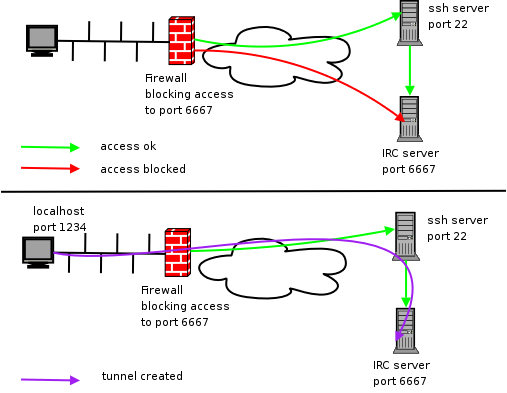Free SSH Tunnel servers in Mexico that save you bandwidth and data with lightning-fast connections, unlimited data transfer, and adaptive compression for secure and seamless remote access, anywhere.
Share our website on social media
- 10GB/s
- Free account SSH Tunnel every 4 days
- Location : Mexico
- City : Mexico City
- SSL/TLS support
No Torrent
Accounts on server : 193
Server ID : N1
The Day Everything Changed
Last month, my friend Ahmed in Mexico was struggling with internet restrictions that were crippling his online business. As a freelance writer, he relied on accessing various websites and services to complete his projects, but the Mexican government’s strict internet regulations were making it impossible for him to do so. He was on the verge of giving up, feeling like his livelihood was being suffocated by the restrictive online environment. I knew I had to help him find a solution.
One day, while we were chatting online, I asked him to try using an ssh tunnel. I had heard about its potential to bypass internet restrictions, and I thought it might be worth a shot. Ahmed was skeptical at first, but he was desperate for a solution, so he agreed to give it a try.
Why SSH Tunnel Was the Answer
As it turned out, SSH tunnel was exactly what Ahmed needed. By creating a secure, encrypted connection between his computer and a remote server, he was able to bypass the Mexican government’s internet restrictions and access the websites and services he needed to complete his projects. The SSH tunnel acted as a virtual private network (VPN), masking his IP address and allowing him to browse the internet freely.
But what really impressed Ahmed was the flexibility of SSH tunnel. He could use it on his Windows laptop, and even on his phone using an SSH tunnel app. He could also use it in conjunction with other tools, like npm, to create a seamless and secure online experience.
How We Made It Work
To set up the SSH tunnel, Ahmed used a simple command in his terminal: . This command created a secure connection between his computer and the remote server, forwarding all traffic from port 8080 on his local machine to port 80 on the remote server.
To make it even easier to use, Ahmed also set up a tunnel vpn using tunnelbear, a popular VPN service. This allowed him to encrypt all his internet traffic and protect his online identity.
With the SSH tunnel up and running, Ahmed was able to access all the websites and services he needed to complete his projects. He was able to work freely, without worrying about internet restrictions or online censorship.
Life After SSH Tunnel
The impact of SSH tunnel on Ahmed’s life was immense. He was able to complete his projects on time, and his business began to thrive. He was able to access all the online resources he needed, and he even started to explore new opportunities and markets.
But more than that, the SSH tunnel gave Ahmed a sense of freedom and empowerment. He was no longer restricted by the Mexican government’s internet regulations, and he was able to take control of his online life. He felt like he could breathe again, like a weight had been lifted off his shoulders.
What I Learned
Ahmed’s experience with SSH tunnel taught me the importance of online freedom and the power of technology to empower individuals. It also taught me that even in the most restrictive online environments, there are often solutions available that can help individuals access the internet freely.
I learned that SSH tunnel is not just a technical solution, but a symbol of hope and freedom in a world where online censorship and restriction are increasingly prevalent. It’s a reminder that even in the darkest of times, there is always a way forward, always a solution to be found.
Latest 10 Post about SSH Tunnel on Blog

